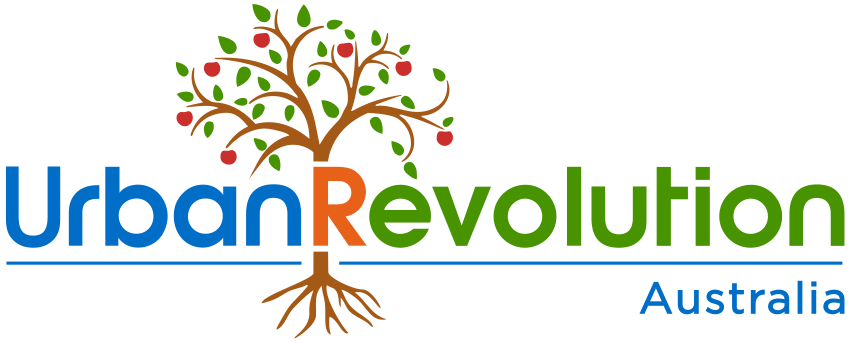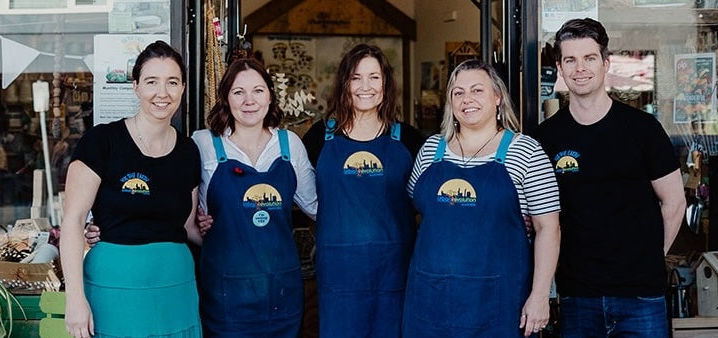There are so many buzz words being thrown around today; sustainable, organic, biodynamic, regenerative... but what do they all actually mean? The answers will probably not only surprise you but also empower you to be able to support those who are trying to change things for the better. Read on to find out more!

Summary
Regenerative agriculture is a healthy and sustainable farming practice that benefits the Earth and helps reverse climate change by healing ecosystems and replenishing soils as we farm.
Biodynamic produce is the best option available today that operates closest to regenerative practices. Biodynamic produce is automatically organic but also looks after the land and ecosystems with it's practices.
Organic (as it is today) is a label for produce that doesn't use a particular list of chemicals but does not govern what products ARE used, how the food is grown or if the land/soils are looked after. Organic produce is much better than conventional produce but does not mean it is grown sustainably.
Conventional Agriculture
Most people today have, at the very least, an idea about the destructive practices of conventional agriculture: the toxic chemical fertilisers, pesticides, over-tilling etc. resulting in fertile land becoming desertified and can no longer sustain life. This is in no way farmers' faults! Human agriculture practices have been affecting the Earth’s soils and ecosystems over the last 3000 years. Since the industrial revolution, we have intensified the harmful practices of deforestation and the nurturing of selected animals and plants on land that results in the removal of ecosystems and biodiversity. Combine this with today’s profit-driven corporations with clever marketing and our under-supported farmers' need to consistently increase crop production.
Unfortunately, many farmers have only ever been taught practices such as over-tilling and buying chemicals that promise increased production. Many think that they are doing the right thing or that it is the only affordable option if they want their farm to survive, when in fact these are the very practices that are pulling them deeper into trouble and further towards destroying their soil for good.

We have provided links to further reading on these issues at the end of this article if you're interested, but in this article we'd like to focus on the SOLUTIONS! Supporting alternatives to degenerative agriculture will help shift mainstream practices, and it's important to know the difference between alternatives such as organic, biodynamic and regenerative agriculture.
'Sustainable' Agriculture
When comparing different practices, a good place to start is looking at sustainable versus regenerative.
- Let's start with the word DE-generative; something is degrading, it's losing it's ability to function.
- Following on from this, sustainable is defined as maintaining something so that it stays the same over time; putting in the minimal amount of work so that something's not completely destroyed.
- Therefore, regenerative is when something is being restored, replenished and fully functioning over time. It is regenerating.
Looking at the meaning of these words really shows that there is a big difference between a sustainable mindset and a regenerative mindset. 'Sustainable' has become a big buzz word in today's society and has become synonymous with environmentally-friendly... but really, the Earth and it's ecosystems are naturally regenerative and this really should be the ultimate goal for human systems, especially in order to reverse the damage that's already been done. That's not to say that what 'sustainability' has come to mean today doesn't encompass some aspects of regeneration - it does! The intention behind the sustainability movement is spot-on, but it is also important to recognise the true meanings behind the words and be aware that what we should be aiming for, are not just sustainable practices, but regenerative practices.

What is Regenerative Agriculture?
Regenerative agriculture has become the new best-practice when it comes to 'sustainable' farming. It involves adapting agricultural practices to better mimic nature so that we are healing ecosystems and regenerating soil as we go.
Almost every culture in the world for the past ten thousand years has experienced that the land degrades as they produce their food. Historically, people would then allow the land to rest and recover before farming it again. As populations have increased, the rest and recovery time has significantly reduced, birthing the degenerative, over-farming practices we see today and the growing market for chemical soil additives to try and artificially sustain over-farmed soils.
Regenerative agriculture is the flip-side of this, where land and soils are revived, replenished and healed as they are farmed. Regenerative agriculture shares many principles with permaculture and appears to be the best and only way to revive depleted, over-farmed land, create truly sustainable agricultural systems and meet food demands (that are also nutrient-dense and toxin-free) into the future.
Many resources are available to learn what regenerative agriculture involves, including:
- The 2020 film Kiss the Ground (coming to Netflix 22nd September 2020)
- The website Kiss the Ground
- The 2019 film 2040
- The 2018 film The Biggest Little Farm (available on Stan)
- The Australian organisation Regrarians
- The Australian/American 2015 film Polyfaces by Regrarians

How Does Organic Agriculture Compare?
For most people, organic produce is the best option available - and it is MUCH better for the health of our bodies and the planet than conventional produce! However, it is important to know that when you're buying organic produce, you're not necessarily buying produce that has been grown using Earth-friendly practices that properly care for the soil. In fact, organic farming can (in some cases) be just as destructive as conventional farming.
Unfortunately, the meaning of organic farming has shifted from what you should be doing to what you're not allowed to do. The Certified Organic label is awarded to producers who don't use chemicals from a particular list but says nothing about what they ARE using, how they're farming or if they're giving back to the soil. Organic agriculture has unfortunately gone down this path to be able to quickly mass produce crops with the 'organic' label.
Becoming and maintaining a 'Certified Organic' label is a rigorous and costly process involving annual testing, auditing, reviewing and approvals. This has good and bad repercussions: if something has the ACO label then you know they're following the organic guidelines, but the rigorous and costly process is a large barrier for farmers and significantly increases the price of organic produce. Read all about the requirements, benefits and limitations of Organic Certification in this article.
Going back to the definitions outlined earlier, our current state of organic agriculture is closest to a sustainable model where ecosystems are not being destroyed, but they're not being healed or regenerated either. However, the organic label really doesn't specify how the land is being treated and so a farm can be certified organic but still be abusing the soil and desertifying land so that it's no longer able to sustain life - a degenerative and very unsustainable and destructive practice.
When in doubt, organic is a much better option than conventional but it is unfortunately (in most cases) no where near regenerative and often not even sustainable.

What is Biodynamic Agriculture?
Biodynamic agriculture is a model of holistic farming founded by Rudolf Steiner (1861-1925) that attempts to mimic nature. It is based on the idea that everything is connected and that the whole ecosystem should be nourished for successful farming. Biodynamic farming, in its ideal form, encourages diversity in the whole living system, including insects, birds, grazing mammals, pollinators and soil organisms.
The biodynamic label is the closest option to regenerative that is available today. Though it is not common to find in mainstream Australian supermarkets, many independent organic grocery stores and farmers markets will have at least a couple of biodynamic options.
For the best chance of finding local biodynamic produce in Perth, try these five great Perth Farmers Markets:
- Perth City Farm's Farmers Markets
- Farmers Market on Manning
- Loose Produce
- The Big Little Store
- Organic on Charles

References and Further Reading
- Article on All You Need To Know About 'Certified Organic'
- Article on How Composting Helps Reverse Climate Change.
- Podcast by Plant Proof: Regenerative agriculture with Ryland Engelhart and Finian Makepeace.
- Kiss the Ground website - a nonprofit organisation (and film - watch on Netflix from 22nd September 2020) promoting regeneration.
- The Soil Story by Kiss the Ground - YouTube video on regeneration and climate change.
- Grazed and Confused by FCRN - a report on holistic grazing and climate change.
- Plant Proof article: Climate Change and Our Food System.
- Australian Certified Organic website.
- Article on the easiest way to compost in an urban home using a Bokashi compost system.
- The 2020 film Kiss the Ground (coming to Netflix 22nd September 2020)
- The 2019 film 2040
- The 2018 film The Biggest Little Farm (available on Stan)
- The Australian organisation Regrarians
- The Australian/American 2015 film Polyfaces by Regrarians
- ABC article on ancient civilisations' Earth impact






Leave a comment (all fields required)